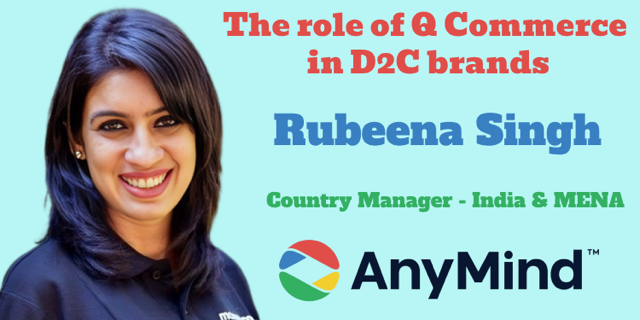As the business of D2C brands continues to strengthen in India, the role of Quick Commerce or Q Commerce is now intensifying. Unlike traditional e-commerce, which typically involves longer delivery times, Q-commerce platforms provide a plug-and-play model. This lowers the barrier to entry for new D2C brands, allowing them to reach a broad audience without significant upfront investments in physical stores or complex distribution networks.
Q-commerce platforms meet the growing demand for instant gratification among India’s young, urban population, who prioritize convenience and speed in their shopping experiences. By delivering products almost instantaneously through hyperlocal networks and advanced logistics, Q-commerce aligns perfectly with these consumer expectations. These platforms also offer invaluable data-driven insights into consumer preferences, purchase patterns, and peak demand times. This data empowers D2C brands to refine their product offerings, optimize marketing strategies, and manage inventory more effectively, thereby enhancing overall operational efficiency. Additionally, quick commerce enables D2C brands to experiment and iterate swiftly. They can test new products or variants in real time, gather immediate feedback, and adjust their strategies accordingly. This agility allows brands to stay responsive to market trends and consumer needs, fostering innovation and sustained growth in a competitive landscape.
Quick commerce represents a transformative opportunity for D2C brands, providing them with tools and capabilities to accelerate market entry, meet consumer demands for speed and convenience, leverage data-driven insights, and maintain agility in product development and marketing strategies.
In the B2B sector, e-commerce is also thriving, with significant market size and potential for growth. Digital transactions enhance efficiency for wholesalers, manufacturers, and distributors, with a strong emphasis on improving the customer experience through better e-commerce portals. Overall, D2C growth in quick commerce outpaces traditional e-commerce, proving to be both profitable and strategically advantageous for brands looking to control their market presence and customer relationships.
Q Commerce provide D2C brands a larger platform to connect to masses. It also facilitates supply chain management while reducing costs and improving collaboration. Seamless transactions and effective order fulfilment are ensured in every transaction through digital platforms, which support real-time communication. The sizing epicentre of Q Commerce, which drives disruption in the D2C space, rests within the evolving nature of brands at pace with customer expectations. This is encouraging for the companies as there is much more profitability than regular e-commerce and it helps meet the timely needs of the consumers.
D2C businesses raise individualized experiences that aid client loyalty and retention. Q-commerce drives corporate success with quicker delivery times, increased consumer happiness, and insightful data by keeping a higher degree of control over market presence and relationships. This works well for both. Noticeably, the growth of Q-Commerce in the D2C space simply outpaces traditional e-commerce; it is very profitable and has a strategic edge forward for the brands eyeing an online presence and building lasting bonds with customers. It is in this regard that the shift to Q-commerce will allow D2C brands to speed up delivery times and customer satisfaction, deriving invaluable data insights that will fuel business success and growth. Q-commerce keeps D2C brands competitive in the fast-changing industry.
Digital transformation and customer experience-first strategy can open new channels of opportunity while building a strong online presence and driving growth for D2C brands. Those who deliver remarkable customer experiences, efficient operations, and innovative solutions will ultimately own the future of B2B e-commerce. Leveraging Q-commerce, D2C businesses will be able to drive decision-making with data analytics.

















